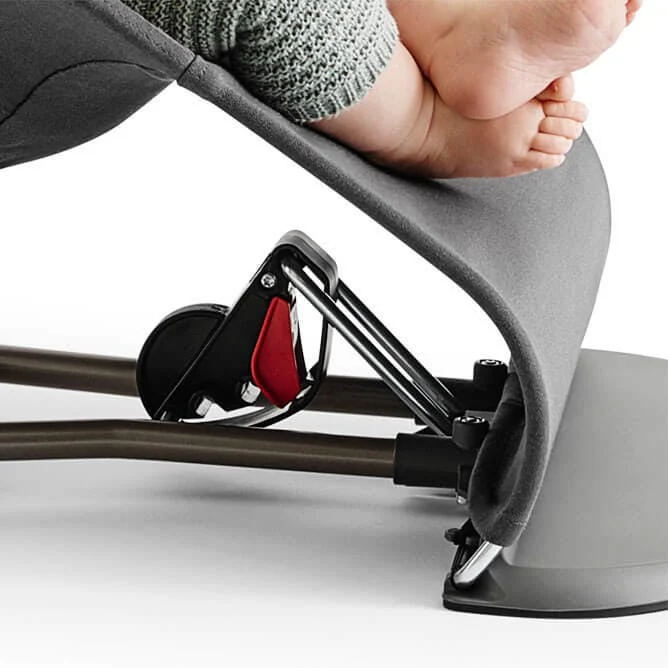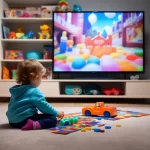I. Introduction to Child Development Stages

A. Defining the Toddler Stage
The toddler stage, typically spanning from the ages of 1 to 3 years, is a period of rapid growth and development in a child’s life. This phase is characterized by significant physical, cognitive, and emotional milestones as children transition from infancy to early childhood. Toddlers are budding explorers, eager to engage with the world around them while experiencing tremendous growth and change.
B. Transitioning to the Preschool Years
As toddlers near the age of 3, they begin to transition into the preschool years. This marks a pivotal shift in their development as they become more independent, curious, and socially engaged. The preschool years lay the groundwork for formal education, providing opportunities for language development, socialization, and the acquisition of essential skills.
II. Characteristics of the Toddler Stage
A. Physical and Cognitive Development
The toddler stage is marked by remarkable physical changes and cognitive advancements. Toddlers experience significant growth in motor skills, enabling them to walk, climb, run, and explore their surroundings with increasing dexterity. Fine motor skills also progress, allowing them to grasp objects, manipulate toys, and engage in activities that promote hand-eye coordination. Their cognitive abilities flourish as they begin to understand cause and effect, solve simple problems, and demonstrate growing independence in their actions.
B. Social and Emotional Milestones
Toddlers undergo essential social and emotional development, learning to navigate their feelings, express themselves, and interact with others. They begin to form attachments with caregivers and peers, displaying emotions such as empathy, affection, and trust. They may also exhibit signs of independence, asserting their preferences and asserting their autonomy as they discover their individuality and assert their will.
C. Speech and Language Skills

The toddler stage is a critical period for language acquisition and communication development. Toddlers progress from babbling and using single words to forming simple sentences and engaging in basic conversations. Their vocabulary expands rapidly, and they begin to comprehend more complex instructions and ideas. Additionally, they may demonstrate an emerging understanding of nonverbal cues and gestures, further enhancing their ability to express themselves and understand others.
III. Crossing the Threshold: When is a Child No Longer a Toddler?
As parents, we often wonder when our children have crossed the threshold from toddlerhood to “big kid” status. There are several factors to consider when determining when a child is no longer a toddler, including age-based transitions, developmental readiness for school, and independence and self-care skills.
A. Age-Based Transitions
One of the most common ways to determine when a child is no longer a toddler is by looking at their age. While there is no hard and fast rule, many experts consider the end of toddlerhood to be around the age of three. At this point, children have typically outgrown many of the developmental behaviors associated with toddlers, such as temper tantrums and a strong reliance on their parents for everything.
As children approach age three, they begin to show more independence and a growing ability to communicate and express their needs. They may also start to show more interest in playing with other children and engaging in more complex activities. While age is not the only factor to consider, it can be a helpful guideline when determining when a child is no longer a toddler.
B. Developmental Readiness for School
Another important factor to consider when determining when a child is no longer a toddler is their developmental readiness for school. While this may vary from child to child, most children are considered ready for preschool or pre-kindergarten around the age of three or four. At this age, children are typically more socially and emotionally mature and can handle the demands of a structured school environment.
Additionally, children who are no longer toddlers may show an increased interest in learning and acquiring new skills. They may be able to follow simple instructions, engage in cooperative play with other children, and demonstrate an ability to focus on and complete tasks. These are all important indicators of readiness for school and can help parents determine when their child is no longer a toddler.
C. Independence and Self-Care Skills
Finally, a child’s level of independence and self-care skills can also be a good indicator of when they are no longer a toddler. As children grow and develop, they become more capable of taking care of their own basic needs, such as dressing themselves, using the toilet independently, and feeding themselves. By the age of three or four, most children have mastered these basic self-care skills and are able to take on more responsibility for themselves.
In addition to basic self-care skills, children who are no longer toddlers may also begin to show a growing sense of independence in other areas of their lives. They may express a desire to make their own choices, take on more responsibilities around the house, and assert their own preferences and opinions. This shift towards independence is a natural part of development and can help parents recognize when their child is no longer a toddler.
IV. Challenges and Opportunities Beyond Toddlerhood
A. Potty Training and Self-Regulation
The transition out of toddlerhood often coincides with the milestone of potty training, a significant achievement that marks a child’s growing independence and self-regulation. Potty training represents a crucial step in a child’s development, as it involves learning to recognize bodily cues, navigate personal hygiene, and exercise self-control. By successfully mastering this skill, children gain a newfound sense of autonomy and a foundational understanding of self-regulation. And they can set the stage for further accomplishments in their developmental journey.
B. Socialization and Peer Interactions
Beyond toddlerhood, children begin to engage more extensively in socialization and peer interactions. This phase presents both challenges and opportunities as children navigate the complexities of forming friendships, cooperating with peers, and understanding social norms. Encouraging positive socialization experiences and providing opportunities for peer interactions can foster valuable social skills, empathy, and cooperative behaviors. Nurturing healthy peer relationships lays the groundwork for emotional development, enhances communication skills.
C. Expanded Learning and Communication Skills
As children transition past the toddler stage, they demonstrate an increased capacity for learning and communication. Their expanding vocabulary, improved language comprehension, and enhanced cognitive abilities enable them to engage in more sophisticated learning experiences. This period offers an opportunity for expanded cognitive development, as children become more receptive to structured learning activities.
V. Supporting Children in the Transitional Phase
A. Encouraging Independence and Exploration
As children navigate the transitional phase from toddlerhood to the next developmental stage, it is vital to encourage their independence and exploration. Providing age-appropriate opportunities for decision-making, problem-solving, and self-expression empowers children to assert their autonomy and build confidence in their abilities. As they embark on new experiences and challenges, fostering a sense of independence creates a foundation for their growth.
B. Promoting Healthy Sleep and Nutrition Habits
Supporting children in the transitional phase includes promoting healthy sleep and nutrition habits. Adequate sleep is essential for their physical and cognitive well-being.
C. Nurturing Emotional Intelligence and Resilience
Nurturing emotional intelligence and resilience is crucial for supporting children during the transitional phase. As they encounter new challenges and experiences, fostering emotional awareness, empathy, and coping skills equips them to navigate transitions with confidence and adaptability. By providing a supportive and validating environment, children can develop resilience and emotional intelligence.
In conclusion, the toddler stage is a transformative phase characterized by significant growth and development across various domains. Understanding the unique characteristics and milestones of this developmental period is essential for parents, caregivers, and educators to provide the support and guidance needed for toddlers to thrive and reach their full potential.



